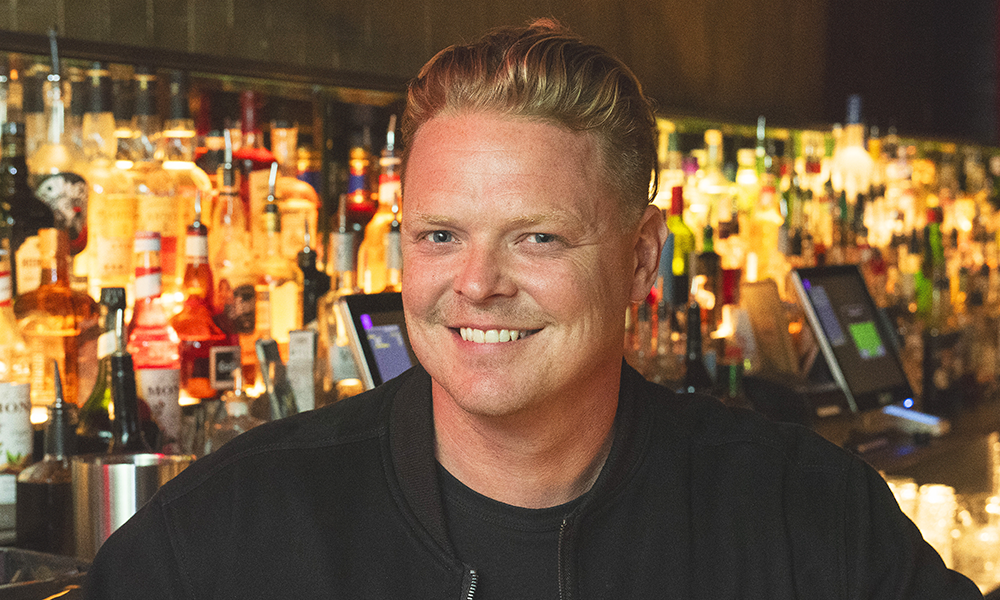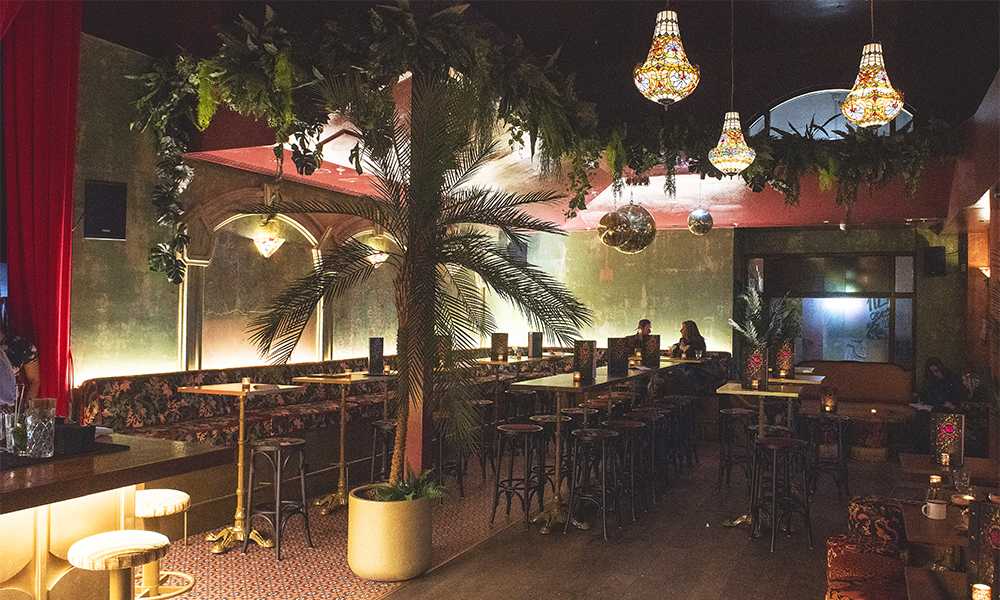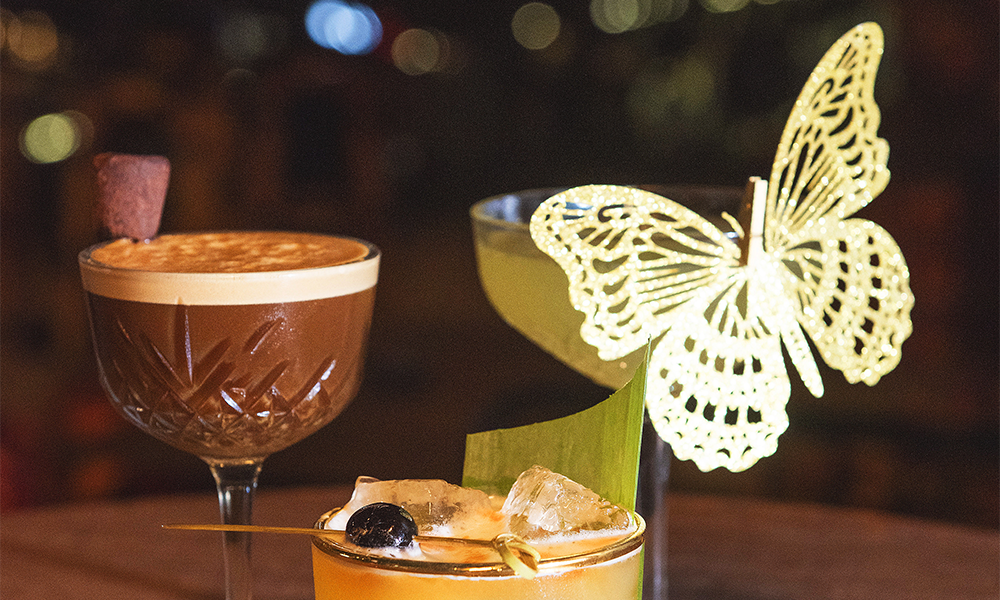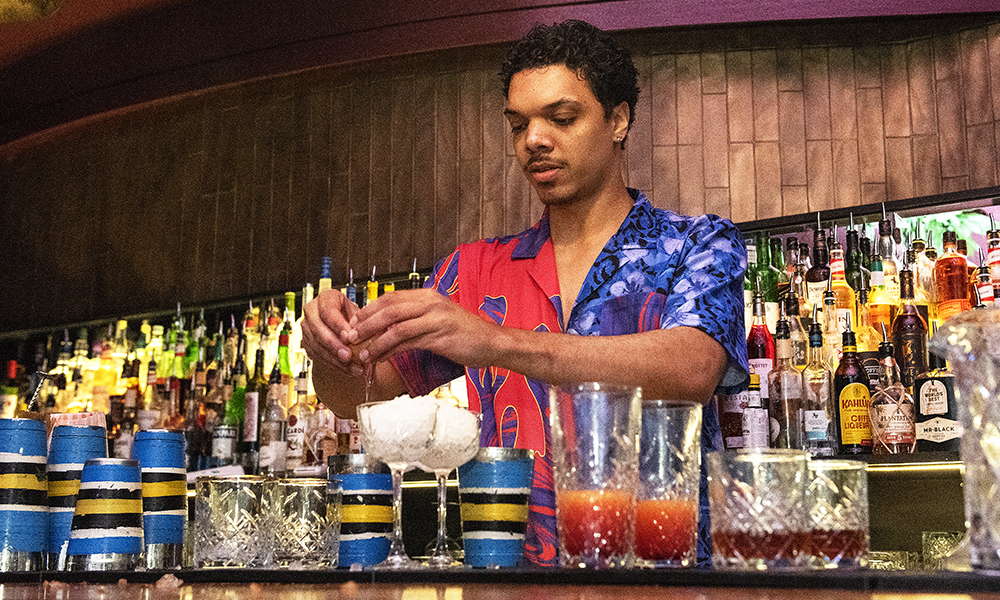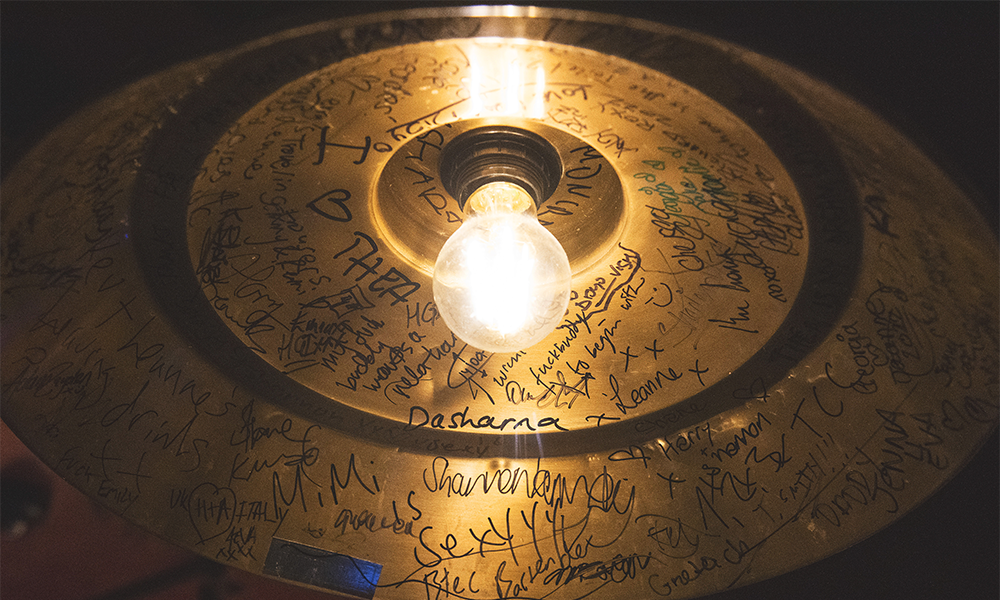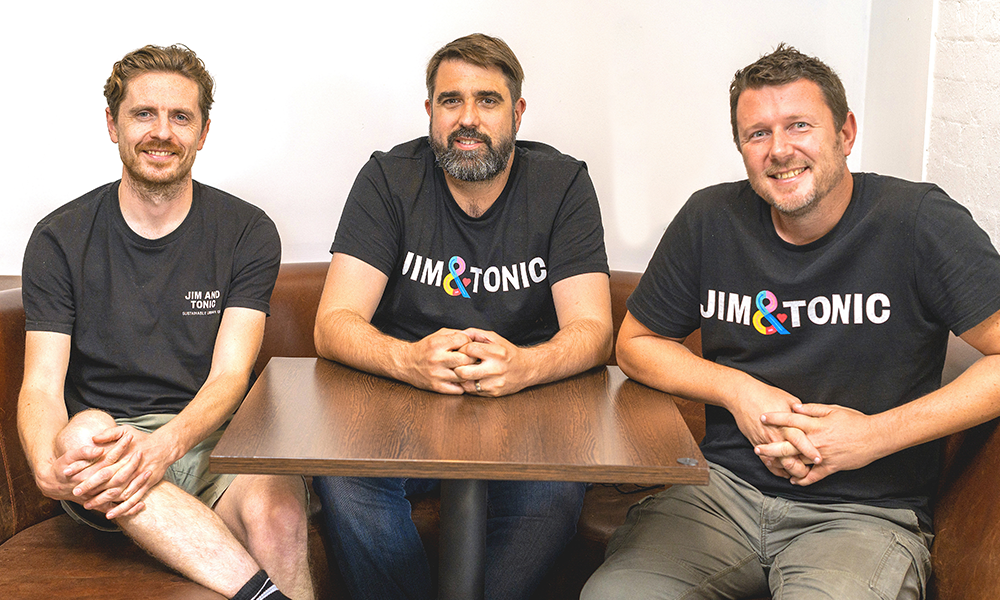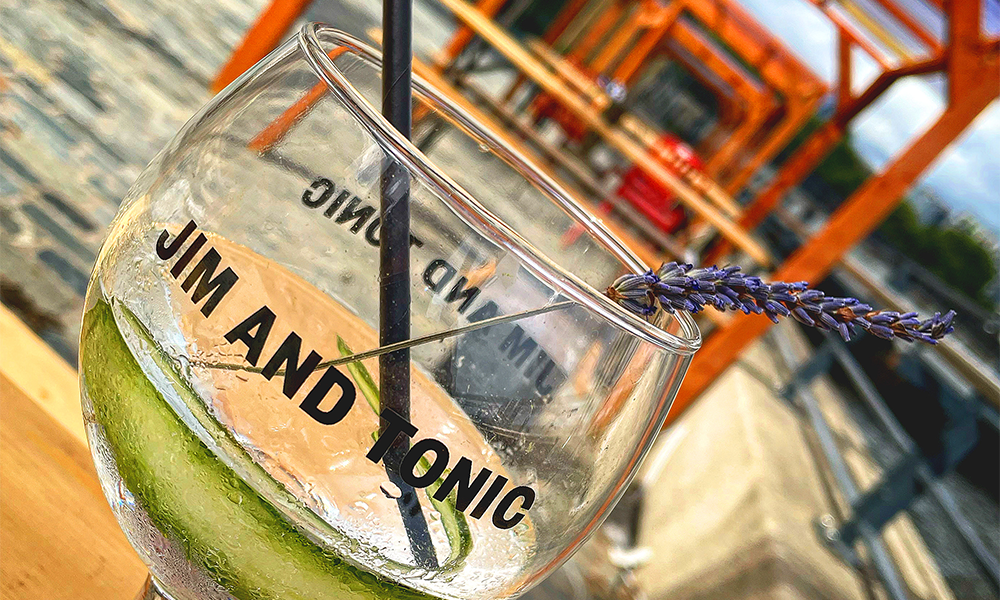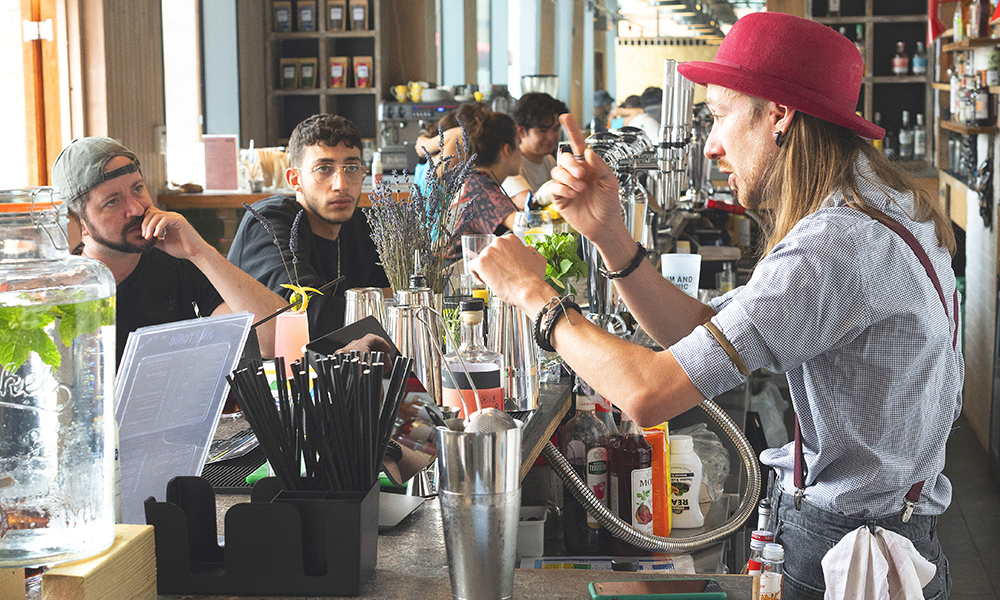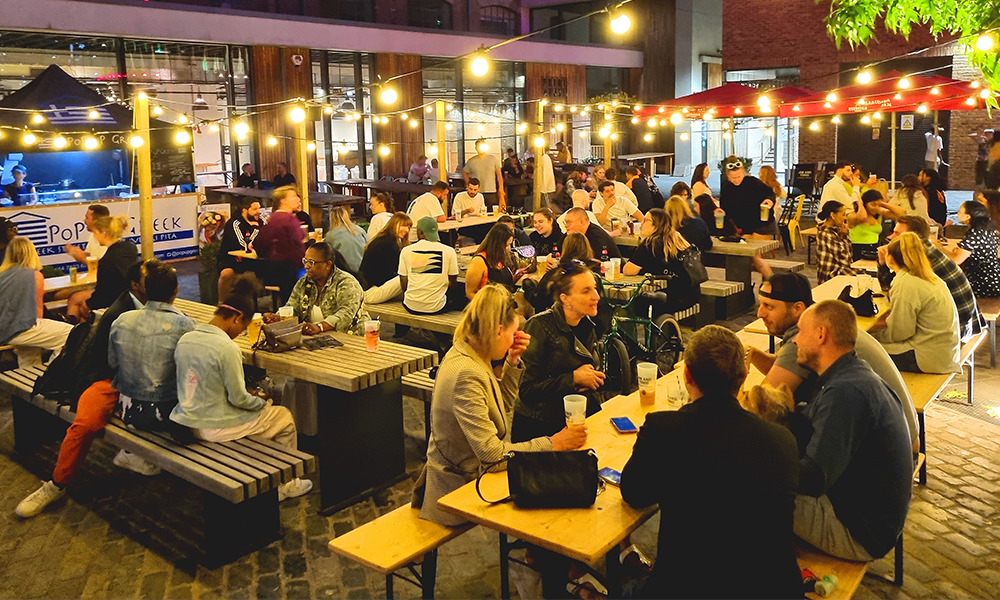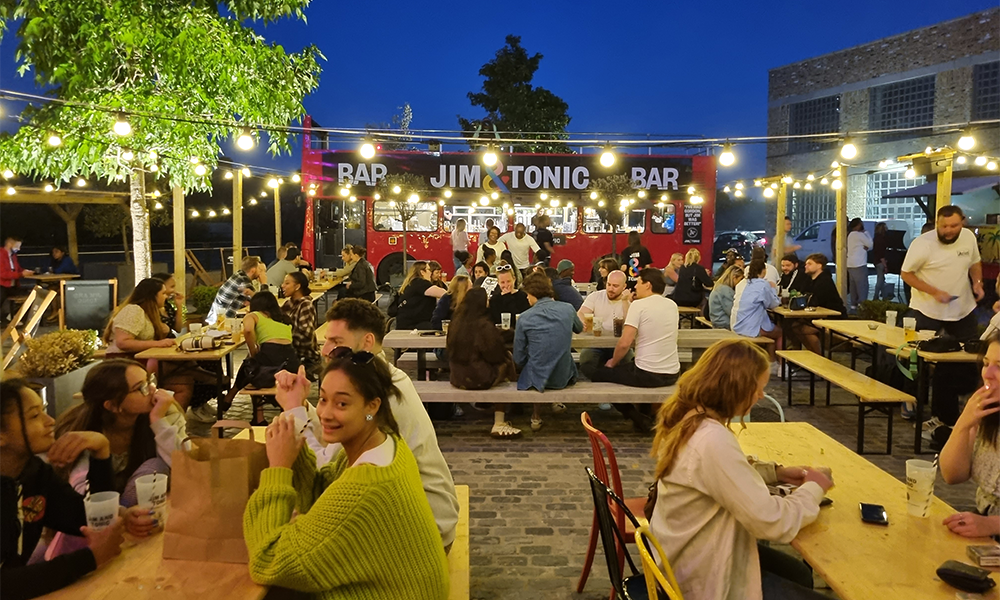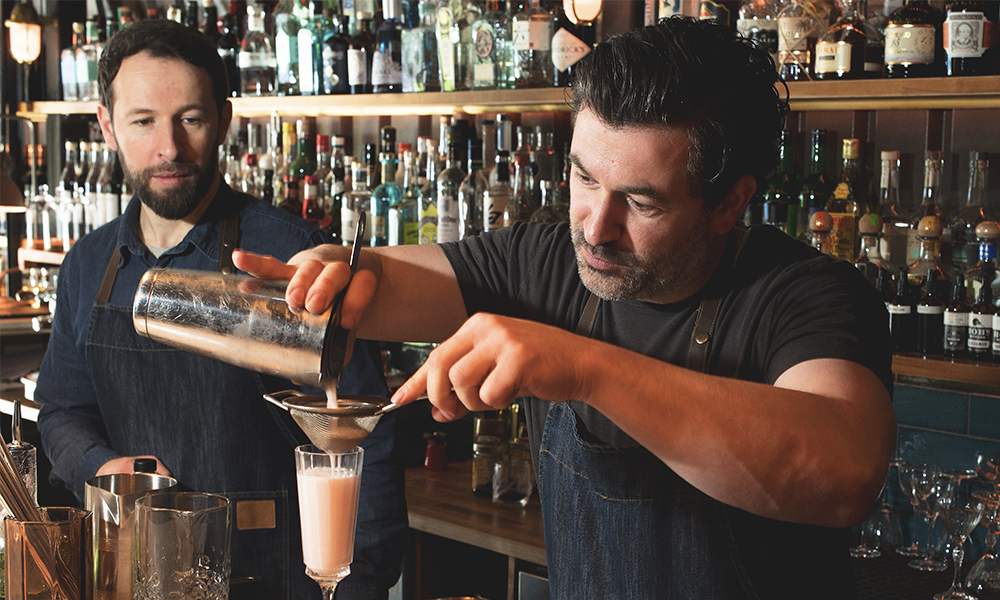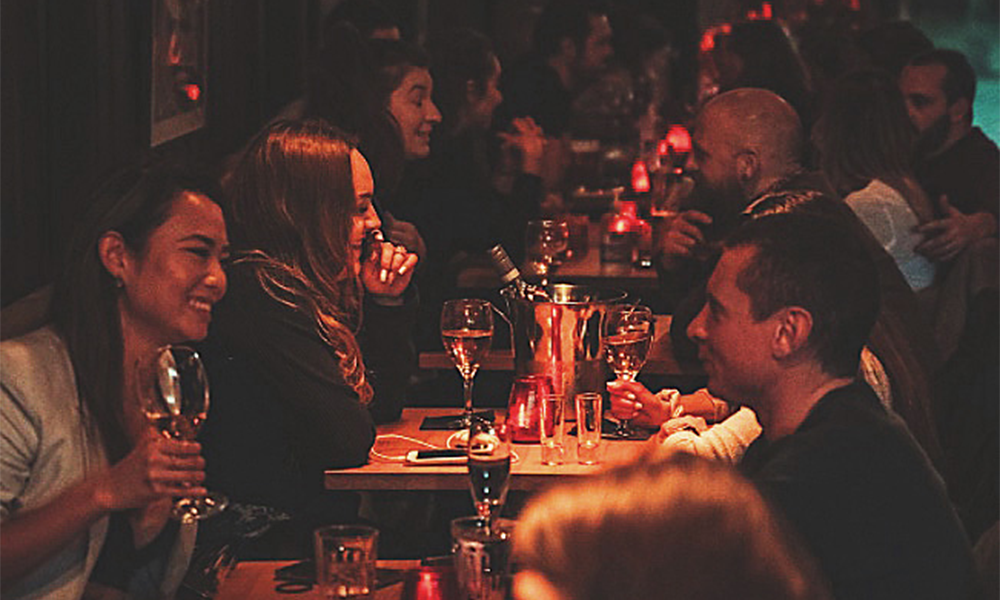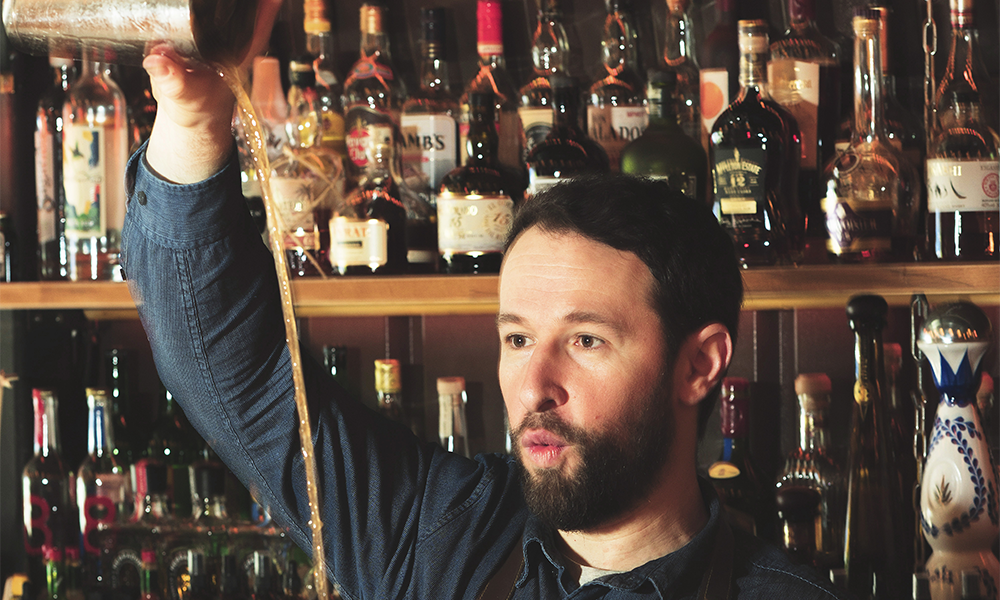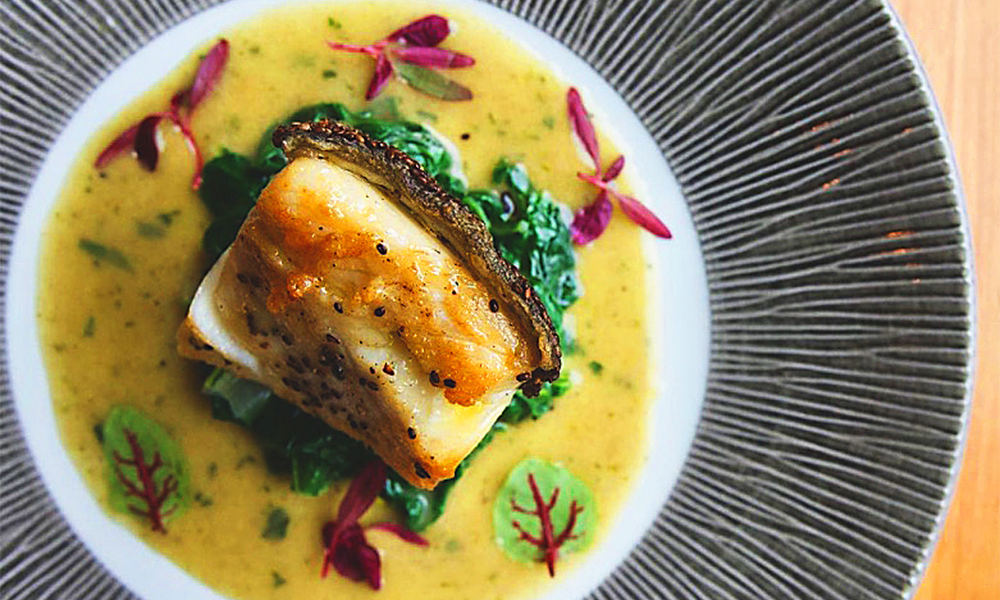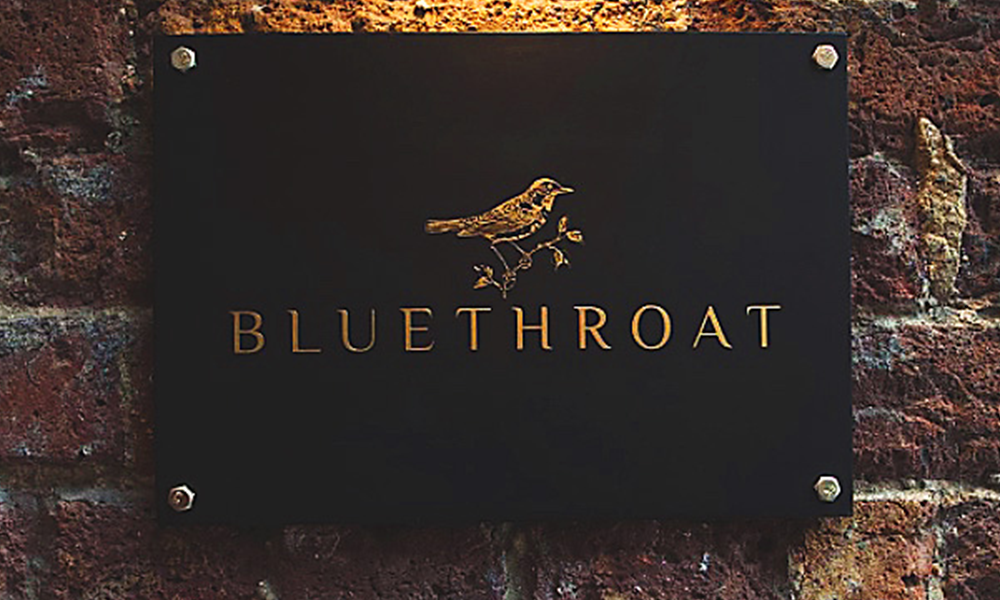Toby Kidman has combined outdoor cooking, covered drinking and dining and live music at the reimagined south-east London venue
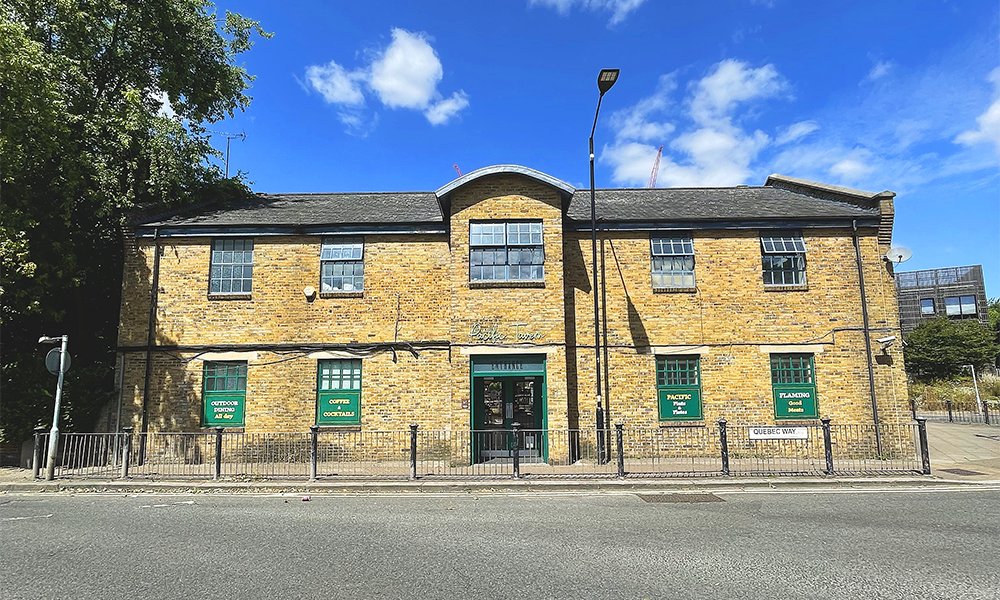
Subscribe to our free Wharf Whispers newsletter here
There’s something about The Pacific Tavern.
It might be that the place is essentially an island, cut off from its surroundings by road and a construction site.
It could be the expansive decked and covered area out back that feels somewhere between beach club and botanical garden.
Then there’s the rough-hewn planks of timber suspended on concrete that make its seating singular and even the bright images of pacific destinations that jazz up its toilets.
It’s all these things, of course, and more.
Because what founder Toby Kidman has managed to fill the venue with, is a good dose of pure, old-fashioned soul.
Purpose-built as a pub in the 1980s, the Pac Tav was formerly known as the Quebec Curve before spending 14 years as a Vietnamese restaurant.
Today, however, it has fresh legs as a pub, restaurant, bar, gig venue, sun trap or just a place to grab a coffee.
Toby is, in many ways, its ideal ambassador.
Like his venue, he comes across as laid back – a man with a sunny disposition ready to warmly welcome anyone who wants to visit for whatever reason.
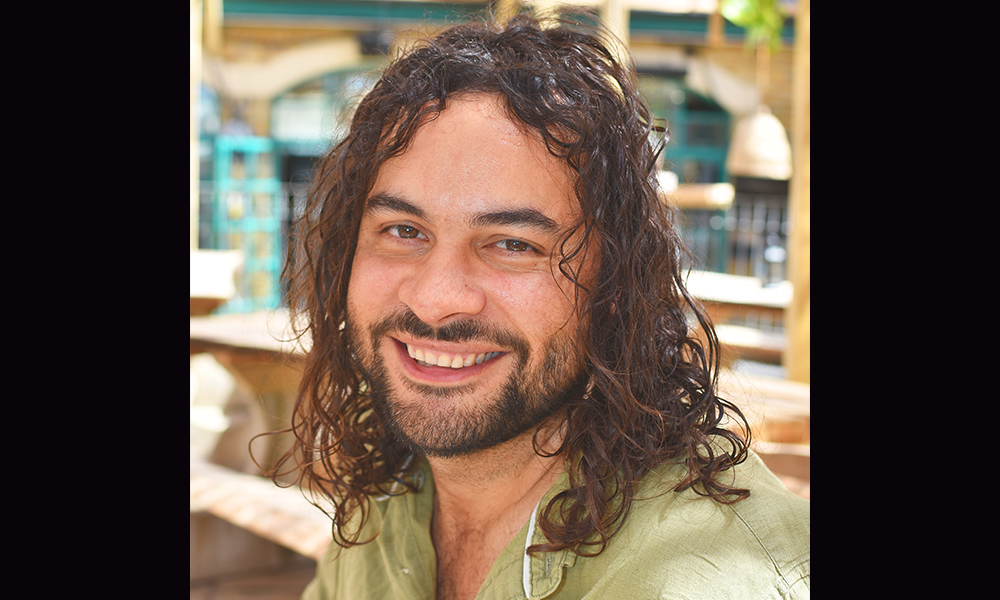
a new creation
“We’ve created a local tavern – pulled together a classic bar and drinks list with a good couple of craft beers and freshened things up with some delicious cocktails,” he said.
“They’re the kind of drinks that could transport you to feeling like you’re on holiday.
“On the space that used to be the car park, we’ve built a weatherproof 120-cover terrace with walls that can be removed and a couple of shipping containers in the open-air part with an outdoor bar and a stage for musicians, DJs, actors and comedians to perform on.
“It’s fun – you could be on a beach.
“When we built it we thought we might have afternoon and day parties with people dancing on the tables and feeling free – events where everyone is welcome.
“We’re starting to achieve that and people are really starting to enjoy the music we’re programming.
“There are no rules. If you want some food, grab it. If you want a beer, have one.
“There are no constraints, it’s like a community hall.”
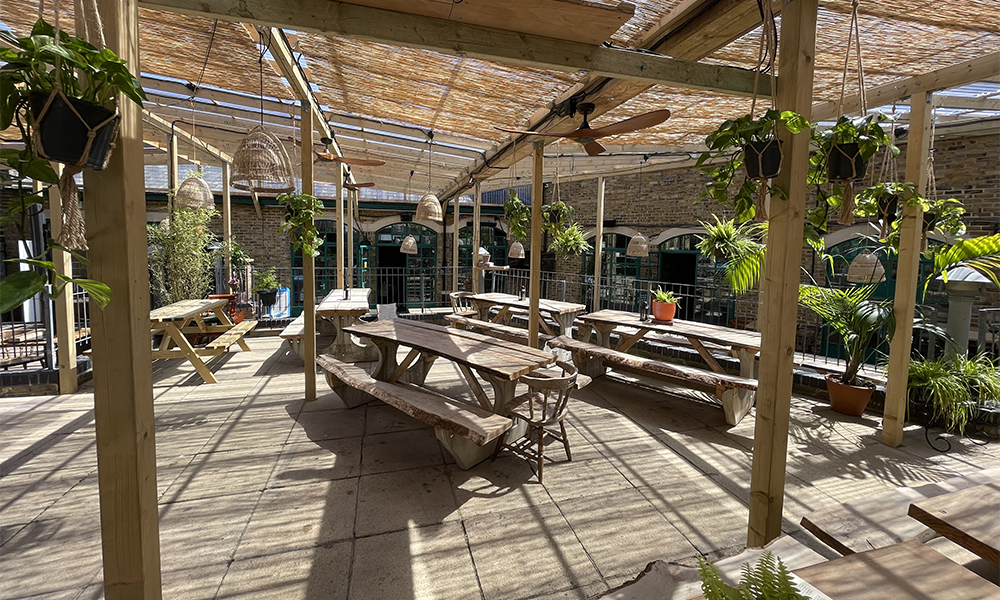
all the way from New Zealand
That focus on meeting customers’ needs when they want is in Toby’s hospitality DNA.
Originally from New Zealand he came to London aged 18, taking his first steps in the industry before returning home to pursue a career in the sector.
A six-month stint working on a 72-foot catamaran in Greece saw him return to Europe, before a temporary trip to London to see a friend on the way home. In the end, he never left. That was 15 years ago.
“I had some friends who were starting an antipodean restaurant in the capital in 2010,” he said.
“At the time, the coffee here was mostly dreadful, restaurants were opening for lunch, closing, then reopening for dinner – it was all white tablecloths and there wasn’t much casual dining.
“Breakfast was either in a hotel or a workers’ caff.
“I’d never understood why all-day dining wasn’t popular.
“That was the idea behind Caravan.
“The concept was that, like the caravans that travelled the Silk Road, it picked up flavours from across the world.
“The first one opened in Exmouth Market and I was head of operations from 2011 until about a year ago – helping it expand and generally muddle along.
“We opened King’s Cross in 2012 and it grew from there.
“It attracted a melting pot of creatives, workers – we had good coffee, good beer and great pizza.
“Today, there are eight branches, including Canary Wharf and Covent Garden.
“I remember when putting avocado on toast on a lunch and dinner menu had people wondering what we were doing.
“But the idea was about not restricting cuisine – it’s still a very exciting brand.”
Toby knew Roger Madelin – joint head of British Land’s project to regenerate Canada Water – from the latter’s time at Argent working at Coal Drops Yard in King’s Cross where Caravan became an early and potent success.
Invited down to south-east London to check out what would become the Pacific Tavern, he immediately saw the potential.
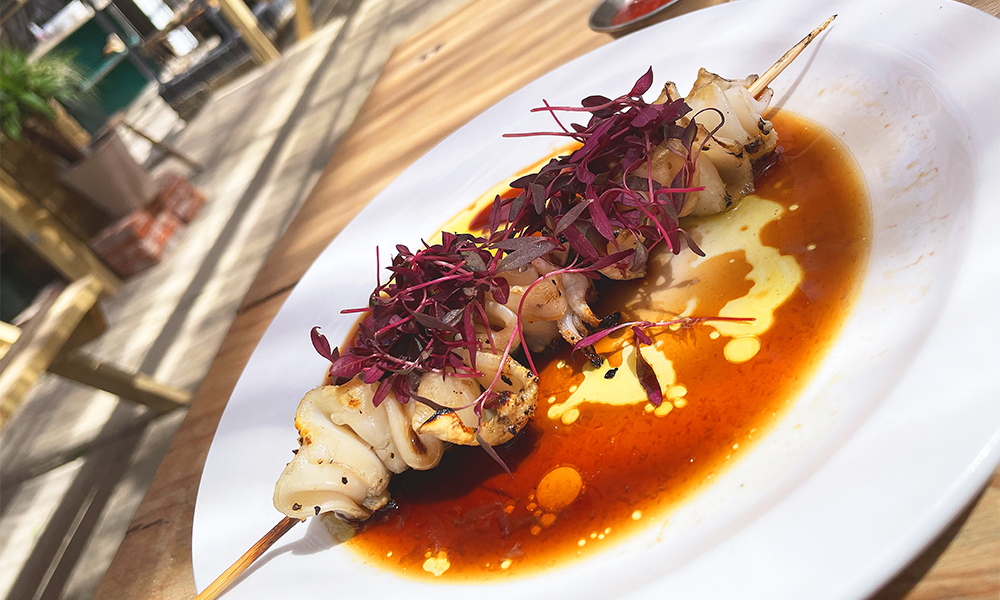
the Pacific Tavern’s potential
“The building itself has a real soul and heart to it,” said Toby.
“If you half-close your eyes for a second, you can just imagine what used to happen here when it was the Quebec Curve.
“Some of the old regulars are still round here and have been happy to see it revived.
“There are some great stories.”
What is completely new, however, is the freedom of the food offering, which deliberately sets the Pac Tav apart.
“The courtyard is covered so we can have it open all year round and that’s where we have our outdoor barbecue where we do all the cooking,” said Toby.
“We wanted to come up with a menu that didn’t restrict the cuisine, so you have the ability to use ingredients you can get from all over the place.
“So, fun, simple, honest cooking.”
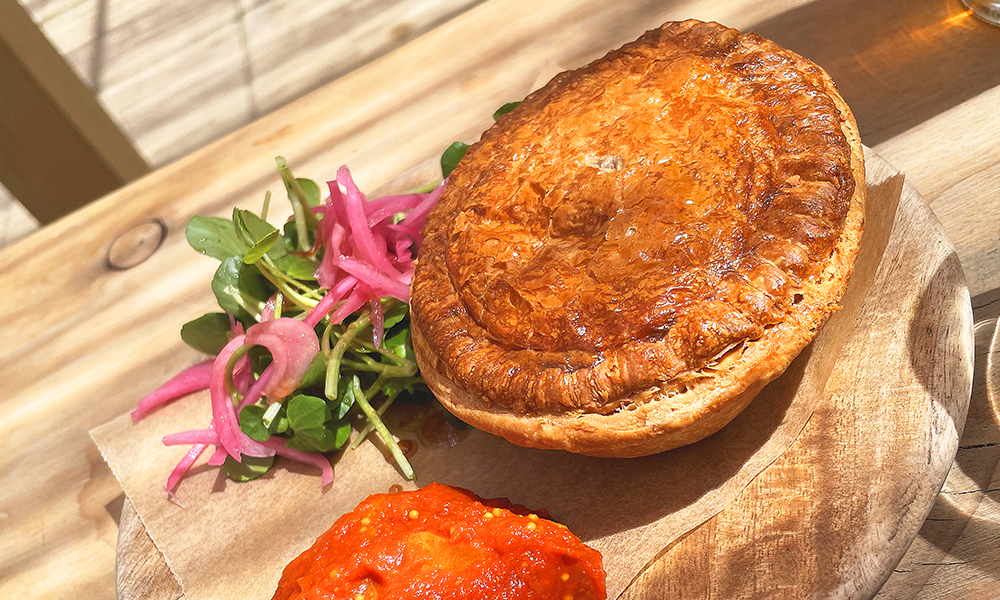
Pacific Tavern pastry pies
“We have New Zealand’s answer to the Cornish pasty – a shortcrust pastry pie with fillings such as mince and cheese, steak and cheese.
“Bacon and egg is a very traditional Kiwi pie filling – there we have pie warmers in every pub and off licence.
“You can grab one for breakfast, lunch or dinner.
“Everything is cooked over flames – the idea is that we take ingredients from around the Pacific Ocean and present them in a way that tastes great.
“We also have an open kitchen so people can go up, talk to the chefs and even order a chef’s plate with whatever they’ve got on.
“It’s about having the traditions of a pub with that Pacific twist to it. That’s in all our dishes.”
And what dishes they are.
Seafood features heavily with the likes of seabream crudo in coconut milk and lime juice with corn for crunch and grilled octopus skewers.
I could write about the menu all day, but it’s better if you go and try it.
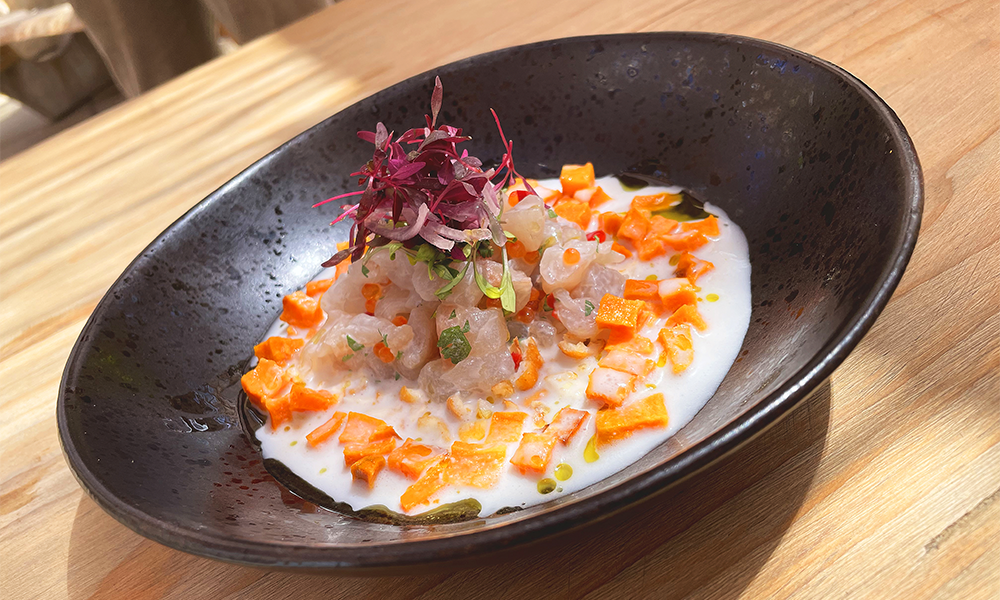
key details: The Pacific Tavern
The Pacific Tavern is open from 10am Thursday-Sunday with closing times up to midnight depending on the day.
It’s open from noon on Tuesdays and Wednesdays and is closed on Mondays.
The best way to keep up with events is to follow the venue on Instagram @thepacifictavern
Find out more about the pub here
Read more: East Bank director Tamsin Ace on collaboration in Stratford
Read Wharf Life’s e-edition here
Subscribe to our free Wharf Whispers newsletter here
- Jon Massey is co-founder and editorial director of Wharf Life and writes about a wide range of subjects in Canary Wharf, Docklands and east London - contact via jon.massey@wharf-life.com




